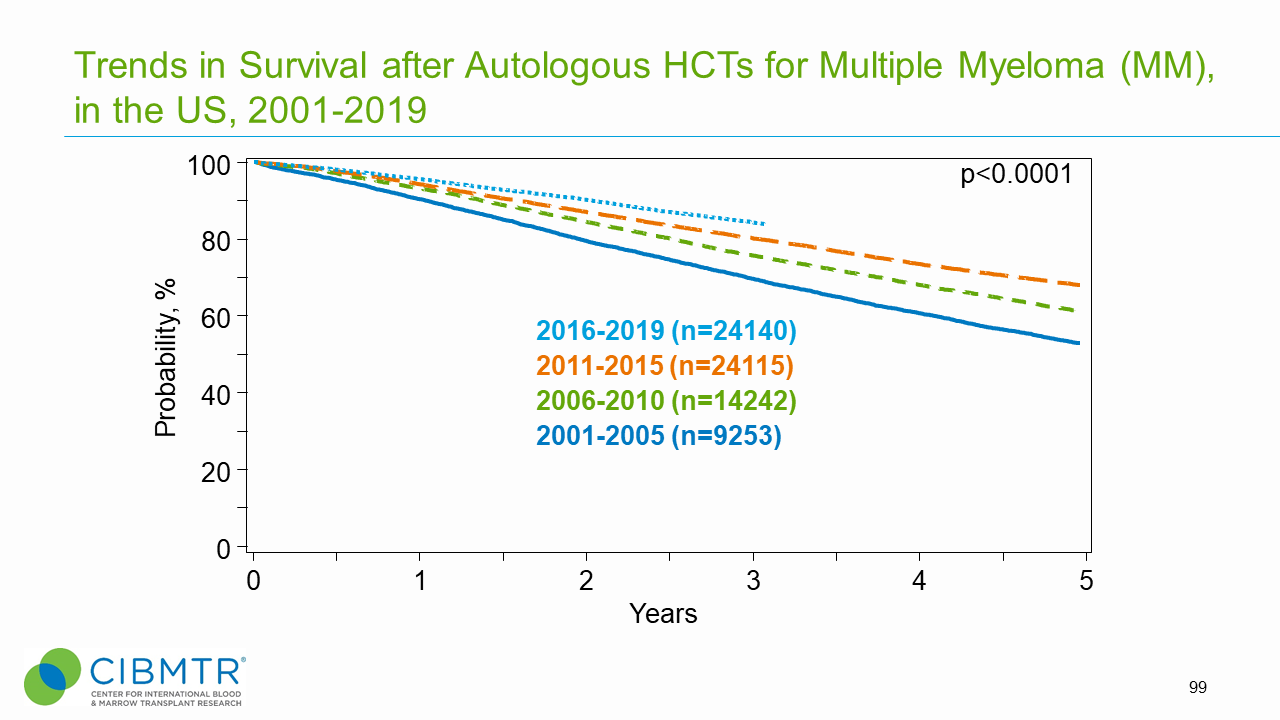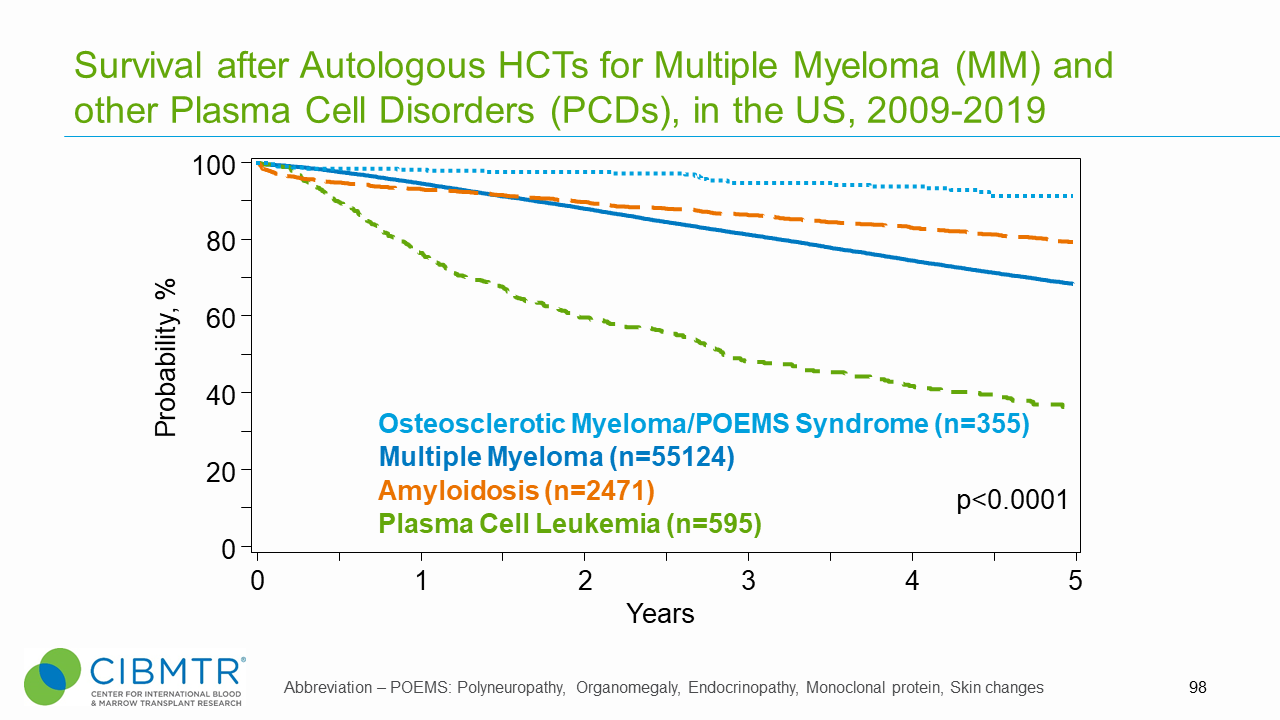Multiple Myeloma and Other Plasma Cell Disorders
Multiple Myeloma
Approximately 34,000 individuals are diagnosed with multiple myeloma (MM) in the United States each year, with a median age at diagnosis of 69 years. [1]
MM is the most common indication for hematopoietic cell transplantation (HCT) in the United States. Approximately 96% of transplants in patients with MM are autologous transplants. [2]
Initial treatment for patients with MM is typically a course of induction therapy, followed by autologous HCT in eligible patients. Allogeneic HCT for MM is generally reserved for patients with high-risk disease. Most allogeneic transplants are performed after an autologous HCT with reduced-intensity or non-myeloablative conditioning regimens. [2,3]
Light Chain Amyloidosis
Autologous HCT in amyloidosis has shown improved post-transplantation survival, including both early post-transplant mortality and 5-year survival. [4]
POEMS syndrome (osteosclerotic myeloma)
Autologous HCT and high-dose chemotherapy are both treatment options for this rare plasma cell dyscrasia, but longer follow-up is needed to better determine overall survival. [5]
Outcomes
Data in this section have been prepared by the CIBMTR® (Center for International Blood and Marrow Transplant Research®). The CIBMTR is a research collaboration between the National Marrow Donor Program® (NMDP)/Be The Match® and the Medical College of Wisconsin.
Figure 1. Survival Trends Over Time, MM Autologous HCT

Download slide
Figure 2. Survival After Autologous HCT, MM and Other Plasma Cell Disorders

Download slide
HCT Consultation Timing Guidelines
The National Marrow Donor Program® (NMDP)/Be The Match® and the American Society for Transplantation and Cellular Therapy (ASTCT) have jointly developed guidelines for transplant consultation and referral timing based on disease characteristics. [6] The National Comprehensive Cancer Network Clinical Practice Guidelines (NCCN Guidelines®) were consulted when developing these guidelines and are a valuable tool in determining risk stratification. [7]
Our guidelines highlight disease categories that include patients at risk for disease progression and who should be referred for a consultation for autologous or allogeneic transplantation. [6]
Transplant Consultation Guidelines: Multiple Myeloma
- At diagnosis
- At progression and/or relapse
Download as a slide
Transplant Consultation Guidelines: Light Chain Amyloidosis
- At diagnosis
- At progression and/or relapse
Download as a slide
Transplant Consultation Guidelines: POEMS Syndrome (Osteosclerotic Myeloma)
- At diagnosis
Download as a slide
View complete HCT Consultation Timing Guidelines
Clinical Trials Search and Support
The NMDP/Be The Match offers the Be The Match® Jason Carter Clinical Trials Search and Support (CTSS) program, which can provide clinical trial navigation to your patients. The CTSS Program was created to help people with blood cancers or blood disorders and their families find and join clinical trials.
For more information, visit Clinical Trials Search and Support.
References
- SEER Stat Fact Sheets: Myeloma. Accessed 9 March, 2018. Access
- D'Souza A, Fretham C. Current Uses and Outcomes of Hematopoietic Cell Transplantation (HCT): CIBMTR Summary Slides, 2017. Available at: http://www.cibmtr.org
- Kyle RA, Rajkumar SV. Multiple myeloma. Blood. 2008; 111(6): 2962-2972. Access
- D’Souza A, Dispenzieri A, Wirk B, et al. Improved Outcomes After Autologous Hematopoietic Cell Transplantation for Light Chain Amyloidosis: A Center for International Blood and Marrow Transplant Research Study. Journal of clinical oncology : official journal of the American Society of Clinical Oncology. 2015;33(32):3741-3749. doi:10.1200/JCO.2015.62.4015. Access
- D’Souza A, Lacy M, Gertz M, et al. Long-term outcomes after autologous stem cell transplantation for patients with POEMS syndrome (osteosclerotic myeloma): a single-center experience. Blood. 2012;120(1):56-62. doi:10.1182/blood-2012-04-423178. Access
- NMDP/Be The Match and ASTCT Recommended Timing for Transplant Consultation. Download (PDF)
- National Comprehensive Cancer Network. Multiple Myeloma. (Version 3.2023). Access